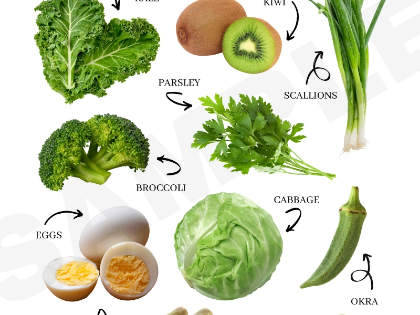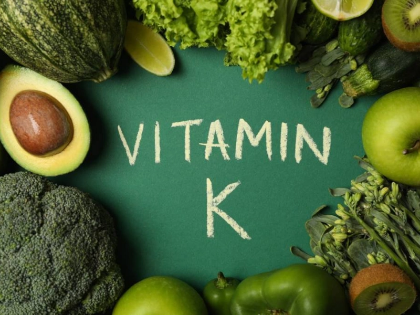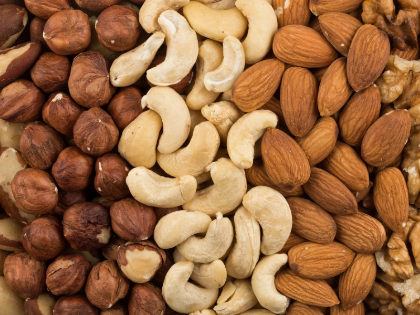Pineapple for Natural Allergy Relief: Exploring Its Potential
1. Gaining Knowledge About Allergies
Allergies are the body's immune response to generally harmless substances, such as pollen, dust, or certain foods. The immune system may overreact to these allergens, resulting in symptoms like inflammation, itching, and sneezing. While many individuals turn to medications for relief, natural remedies can also significantly help manage allergic symptoms. One such remedy that has garnered attention is pineapple, a tropical fruit known for its nutritional benefits.
2. Pineapple's Nutrition Profile
Pineapple is rich in vitamins, minerals, and antioxidants, making it a nutritious addition to any diet. It is particularly high in vitamin C, a well-known immune booster. Pineapple also contains bromelain, an enzyme that has been studied for its potential health benefits, including anti-inflammatory properties. Together, these components may enable pineapple to alleviate allergic reactions.
3. The Part Bromelain Plays
Bromelain, primarily found in the stem and fruit of pineapple, is a proteolytic enzyme that aids in protein breakdown. However, its benefits extend beyond digestion. Research indicates that bromelain may help reduce inflammation and swelling, particularly for those suffering from allergic rhinitis or sinusitis. By decreasing inflammation in the nasal passages, bromelain may help alleviate common allergy symptoms such as sinus pressure and congestion. 
4. Immune Support and Antioxidants
Pineapple is abundant in antioxidants, including phenolic acids and flavonoids, which combat oxidative stress in the body. This oxidative stress can exacerbate allergic reactions and inflammation. Incorporating antioxidant-rich foods like pineapple into your diet can help enhance your immune system and reduce the severity of allergic responses. Additionally, pineapple's high vitamin C content plays a crucial role in supporting immune function and alleviating allergies.
5. Pineapple and Respiratory Hygiene
Pineapple may also benefit individuals suffering from respiratory allergies. The anti-inflammatory properties of bromelain can improve ventilation in the respiratory tract and reduce mucus production. This is particularly helpful for those with asthma or chronic bronchitis, where inflammation and mucus buildup are common issues. Including pineapple in your diet can promote better breathing and clearer airways. 
6. Allergies and GI Health
Many individuals with allergies also experience gastrointestinal issues such as discomfort and bloating. The bromelain in pineapple aids in protein digestion and supports healthy gut function. A well-functioning digestive system is essential for overall health and can help reduce the risk of food allergies. By improving digestive health, pineapple may help mitigate allergic reactions to some extent.
7. Including Pineapple in Your Rotation
Incorporating pineapple into your diet is flexible and straightforward. Fresh pineapple can be enjoyed on its own, added to salads, or blended into smoothies. Pineapple juice is another option, but it's best to choose 100% juice without added sweeteners. Pineapple can also enhance savory dishes like grilled meats or stir-fries. Experimenting with recipes allows you to enjoy the potential allergy-relieving properties of this tropical fruit. 
8. Possibly Allergies to Pineapple
While pineapple offers numerous benefits, it's important to note that some individuals may have fruit allergies. Symptoms can include gastrointestinal issues, swelling, or itching. If you suspect a pineapple allergy, consult a healthcare provider before adding it to your diet. Additionally, moderation is key, as excessive pineapple consumption may lead to stomach discomfort due to its acidity.
9. An Allergic Relief Holistic Approach
Although pineapple can be a valuable addition to an allergy management plan, it's essential to adopt a comprehensive approach. This includes maintaining a balanced diet, identifying and avoiding specific allergens, and exploring various natural remedies. Staying hydrated, getting adequate sleep, and managing stress are also crucial for supporting overall health and reducing allergy symptoms.
10. Pineapple's Prospective Allergy Relief Synopsis
Thanks to its high vitamin C content, antioxidants, and bromelain, pineapple is a nutrient-dense fruit that may naturally alleviate allergy symptoms. By reducing inflammation and supporting the immune system, pineapple can be a beneficial addition to an allergy management diet. While being mindful of potential sensitivities to pineapple itself, incorporating this delightful fruit into your diet may help ease common allergy symptoms. A balanced approach that includes various natural remedies and lifestyle changes can significantly enhance your efforts in managing allergies will be much improved by a balanced strategy including many natural therapies and lifestyle adjustments.









